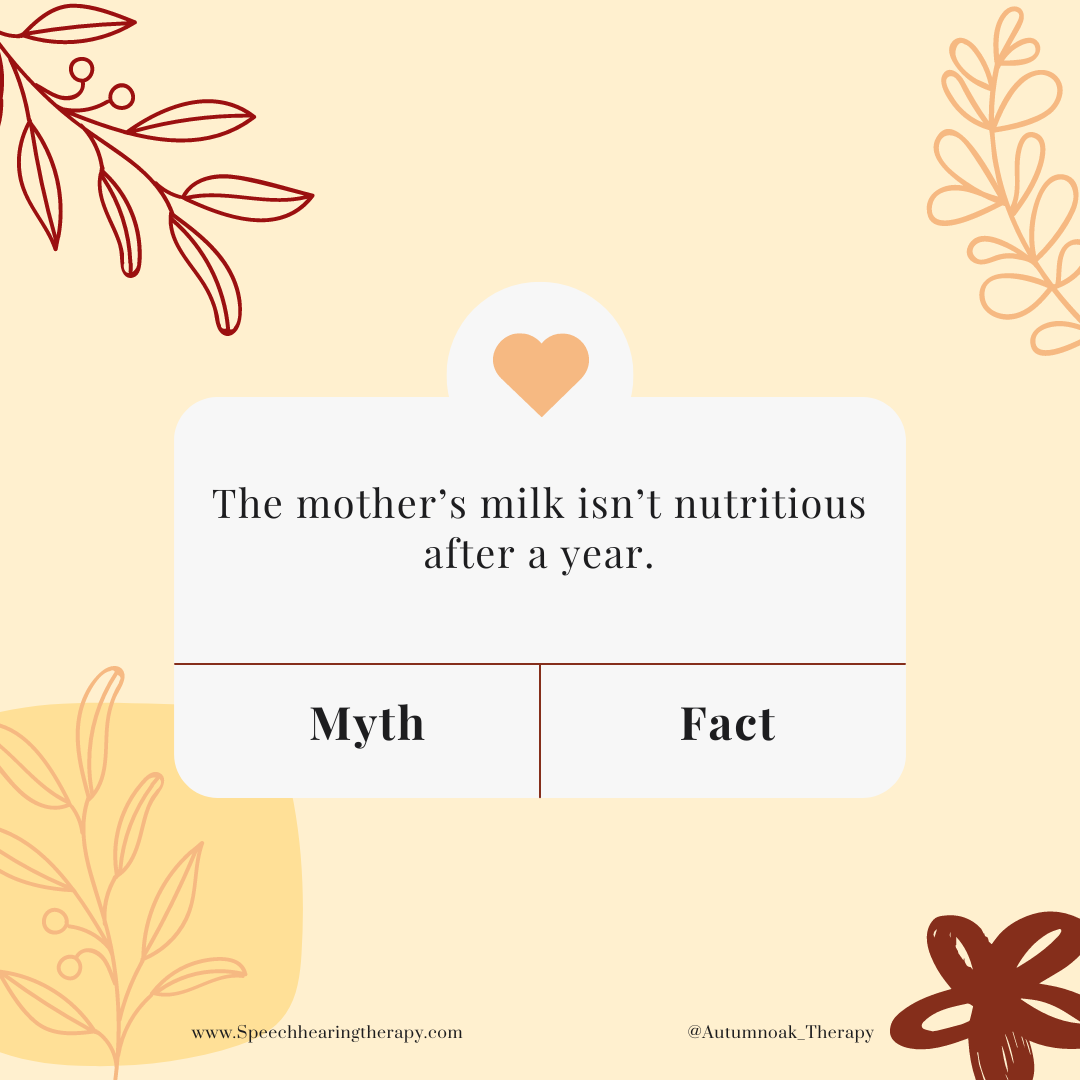Debunking Common Breastfeeding Myths
Feb 10, 2023Debunking Common Breastfeeding Myths
Smaller breasts make less milk
Breast size is unrelated to the amount of milk that is produced. Glandular and fat tissue
in the breast does not influence the number or size of the milk ducts. If your breasts are significantly different sizes, an evaluation from your healthcare provider is recommended to rule out any unknown complications
Babies should be weaned by their first birthday
There is no time when nursing is no longer beneficial. Whether a baby self-weans, or the
transition from breastfeeding is the parent’s decision, breastmilk remains nutritious and
beneficial for as long as it is consumed. Nursing for longer than a year is proven to have
benefits for the mother by decreasing the mother’s risk of developing hypertension,
diabetes, cardiovascular disease, ovarian cancer, and breast cancer. There is a very large
range of average weaning ages in countries across the word, ranging from 1 month to 7
years. The overall word wide weaning age is 2.5 years!
Breastfeeding is easy
Breastfeeding is natural, but it is not easy or instinctual for many mothers. Women in
today’s society do not have the amount of exposure to breastfeeding that women did
generations ago. Often, a mother’s first experience seeing breastfeeding up close is
when they are expected to latch their newborn. This often leads to feelings of
overwhelm, frustration, and inadequacy. It is no one’s fault that breastfeeding is
difficult. If you are experiencing any of these feelings, seek an evaluation from a trained
lactation specialist to address your concerns.
Many women don’t make enough milk
Milk production is largely dependent on how soon after birth the first feeding
happened, and how often milk is removed. Studies show that nursing within the first
two hours after birth significantly increases the amount of milk produced in the
following days and weeks. Each time a baby nurses, the brain receives signals saying
“milk is being removed, we need to make more”.
You can never use formula if you want to successfully breastfeed
Human milk is perfectly designed for infants, babies, and toddlers, and is therefore the
optimal food source at the beginning of life. Studies show that introduction of formula
in the hospital or in the early days and weeks significantly lowers the length of
breastfeeding and exclusive breastfeeding. However, a hungry baby does not have the
energy to nurse. If an infant is unable to receive breast milk due to difficulty latching or
other complications, it is crucial that they have adequate caloric intake while the
problem is being addressed. Therefore, formula can be an appropriate substitute for
breastmilk to help an infant regain strength and energy.
By: Kameron Whigham, M.S., CCC-SLP, CLC



